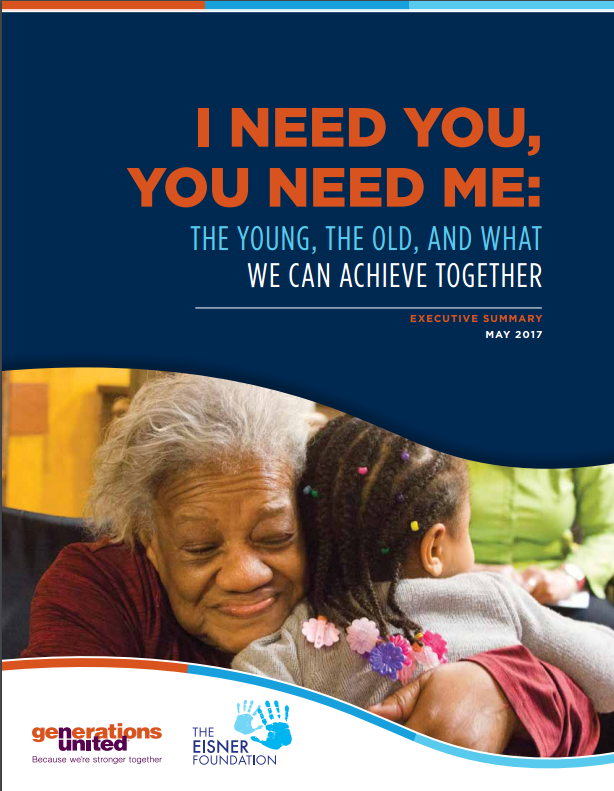
Kids spend their days at school, mostly among peers born the same year they were. Young and middle-aged adults cluster at work. And elders gather for clubs, classes, and meals that often expressly bar the young. Millions of college students and elders live in age-restricted housing, and most American neighborhoods skew young or old. Strikingly, in a recent Generations United/Eisner Foundation survey of adults nationwide, more than half of respondents—53 percent—said that aside from family members, few of the people they regularly spend time with are much older or much younger than they are. Young adults between the ages of 18 and 34 appear to be the most isolated from other generations, with 61 percent reporting a limited number of much older or much younger acquaintances.
It wasn’t always this way: in early America, the generations mixed pretty freely, even though high mortality rates in middle age kept the population of elders small. But in the late nineteenth century, Americans began to recognize both children and elders as vulnerable populations that deserved public protection, a shift that was soon reflected in new policies and institutions. Schooling became compulsory; child labor was banned; and, thanks to Social Security and Medicare, retirement became a standard phase of life.
Because of these changes, children and elders thrived as never before. But, inadvertently, the changes also consigned both groups to isolation—from mainstream society and from one another.
Fortunately, Americans still believe that kids and elders merit special treatment. A phenomenal 93 percent of adults think children and youth are a vulnerable population that society has an obligation to protect, the new Generations United/Eisner Foundation survey shows, while 92 percent believe the same about elders.
But now, we realize that protection should not equal isolation."
Download the Executive Summary
Download the infographic
Source: Generations United
Publishing Criteria
Any resource posted on the Hub is first screened based on the publishing criteria. If you wish to share a resource with the community, please ensure that it fits the requirements and email it to us. We usually post material within 72hrs of receiving it.
Invitation to Contribute
Become a contributor to the hub!
- Share your ongoing projects, research updates and favourite tools
- Announce your upcoming events
- Tell us about promising practices and initiatives via a blog post.
Check out our publishing criteria or email us for more information

















